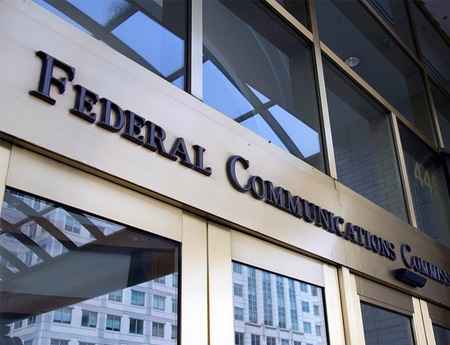FCC Proposes To Ease Path to Next Gen Nets
The smarter way to stay on top of the multichannel video marketplace. Sign up below.
You are now subscribed
Your newsletter sign-up was successful

The FCC voted Thursday (April 20) on a proposal to make it easier to deploy next-generation networks by removing barriers like access to poles and rights of way at the federal, state and local level.
It is a proposal, so the FCC will collect input on 1) making it easier to attach to poles by streamlining access via "one-touch" and "make-ready" rules; 2) reducing charges; 3) establishing a shot clock for consideration of pole attachment complaints; 4) adopting a rate formula; 5) require reciprocal access; 6) speeding up the retirement of copper plant and reducing regulatory "burdens" on that process; 7) eliminating requirements to maintain "outdated" equipment or legacy services.
The proposal would loosen some of the IP transition/cooper retirement regs imposed by the commission under former chairman Tom Wheeler.
The item also asks whether the FCC should have the authority to preempt state and local laws that pose barriers to broadband deployment and whether carriers should have to get permission to "alter or discontinue a service."
NCTA: The Internet & Television Association, praised the move.
“We appreciate the Commission’s efforts to remove outdated regulatory barriers that can slow the expansion of broadband networks. We share Chairman Pai’s goal of closing the digital divide among all Americans and believe that today’s deregulatory actions...will further speed the deployment of broadband networks so that all consumers can enjoy the transformative benefits of the internet.”
The American Cable Association also applauded the streamlining proposal.
The smarter way to stay on top of the multichannel video marketplace. Sign up below.
"ACA members are now planning to spend billions - on top of billions already spent over the past decade - to meet the needs of their customers who demand higher speeds and more capable service," said ACA President Matt Polka. "But far too often ACA members have to delay or abandon their builds because entities that own or control critical infrastructure - such as poles, conduits, and rights-of-way -- take too long to approve access or charge unreasonable fees. ACA therefore supports today's FCC action to initiate a proceeding to examine these 'access' problems and develop solutions. The sooner we can lower these barriers, the sooner Americans living in all areas - served and unserved - will get access to broadband service that meets their needs."
“We are very encouraged by the FCC's efforts to promote infrastructure investment," said Kathy Grillo, Verizon SVP and deputy general counsel. "Next generation technologies will require massive fiber deployments and dense wireless networks to ensure that the United States continues to lead the world in broadband. Chairman Pai has demonstrated that he is committed to policies that enable this investment and that attack unnecessary regulatory barriers.
“We applaud the next steps in the technology transition from antiquated legacy copper-based networks to next-generation broadband networks and removing barriers to investment in wireline networks," said the Internet Innovation alliance.
"“Since 2014, Charter has invested over $16 billion in broadband infrastructure and we are committed to further expanding the reach of our high-speed broadband network," said Charter. "We appreciate the Commission’s efforts to provide a regulatory environment that will spur future infrastructure investment and look forward to working with the FCC to deliver high-speed broadband to more Americans."
Contributing editor John Eggerton has been an editor and/or writer on media regulation, legislation and policy for over four decades, including covering the FCC, FTC, Congress, the major media trade associations, and the federal courts. In addition to Multichannel News and Broadcasting + Cable, his work has appeared in Radio World, TV Technology, TV Fax, This Week in Consumer Electronics, Variety and the Encyclopedia Britannica.

